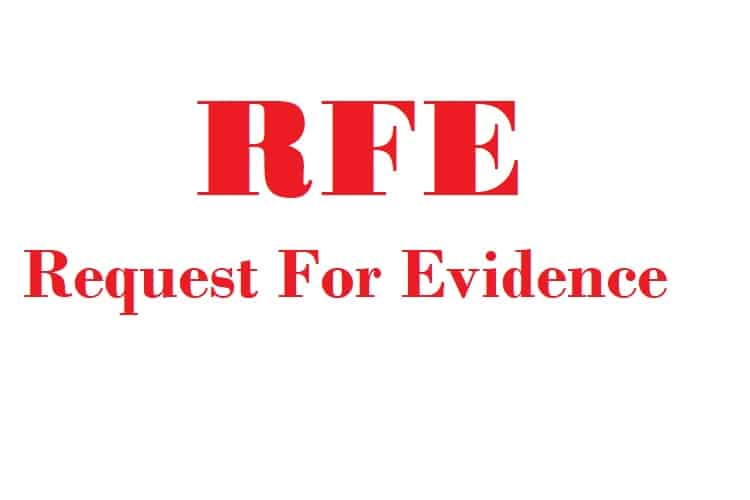Introduction
In our progressively globalized world, the importance of instructional certifications can vary significantly from one country to another. As companies and educational institutions make every effort to embrace variety, comprehending global qualifications has actually ended up being a crucial requirement. This is where international credential examination services action in. These services help in translating foreign certifications into formats that are understandable and appropriate within various contexts, therefore making it possible for individuals to harness their full potential no matter where they come from.
Credential assessment is not merely a governmental process; it's an important tool that cultivates inclusivity and variety. By confirming scholastic records, work experiences, and professional achievements through various techniques-- such as course-by-course credential evaluation and work experience evaluation-- these services guarantee that qualified people get the acknowledgment they should have.
In this substantial post, we will delve deeply into the numerous elements of international credential examination services, explore its role in welcoming variety, and offer insight into how these evaluations are carried out. So, let's embark on this journey to understand how we can construct a more inclusive society through effective credential evaluation.
Understanding Academic Credential Evaluation
What Is Academic Credential Evaluation?
Academic credential evaluation is the procedure of examining and translating educational certifications obtained from foreign organizations. This assessment helps companies, universities, licensing boards, and other entities comprehend what a candidate's credentials mean in their specific context.
Why Is It Necessary?
The requirement for academic credential examinations comes from the globalization of education and employment. With people migrating for much better opportunities or seeking education abroad, it becomes essential to have a standardized method for evaluating their qualifications.
The Function of International Credential Assessment Services
International credential examination services focus on supplying assessments that are acknowledged internationally. They consider different elements such as:
- Institutional Recognition: Critics examine if the releasing institution is accredited. Program Content: Comprehending course material to determine equivalency. Duration of Study: The length of time was the program? Was it part-time or full-time?
These aspects contribute significantly to providing accurate evaluations.
Types of Credential Evaluations Offered
Course-by-Course Credential Evaluation
One of the most in-depth kinds of assessment is a course-by-course credential evaluation, which breaks down each course taken during a person's studies. This type of examination assists in:
- Determining comparable courses in the U.S. Assigning credit hours for each course. Providing detailed information about grades received.
Work Experience Evaluation
Evaluating work experience is vital for specialists whose qualifications may not be strictly scholastic however are nonetheless valid. This type of evaluation can include:
- Analyzing task descriptions. Assessing abilities and competencies gotten through employment. Establishing equivalence with regional standards.
By doing so, individuals can confirm their expert experiences as part of their credentials.
Expert Opinion Letter
An expert viewpoint letter functions as an additional layer of recognition where experts assess a candidate's certifications based on their experience and knowledge about market requirements. This letter can be particularly helpful when:
- The individual does not have official education however has considerable skills. There is uncertainty regarding global credentials.
This includes credibility to applications across numerous sectors.
Business Plan Evaluation
For entrepreneurs looking to begin businesses abroad or secure funding, a business plan evaluation evaluates whether their proposed service aligns with local regulations and market needs. This consists of:
- Financial projections. Market analysis. Risk assessments.
Evaluating organization plans permits investors and stakeholders to make informed decisions while considering diverse concepts from different cultures.
The Significance of Embracing Diversity Through Credential Evaluation
Fostering Inclusivity in Education
Embracing diversity through international credential evaluation services promotes inclusivity in educational institutions by guaranteeing that deserving prospects have access to college opportunities regardless of where they earned their degrees.
Case Study: University Admissions
Consider a university that accepts international students but does not have robust procedures for assessing foreign qualifications. By partnering with reputable global credential evaluators, they can:
Increase the variety of their trainee population. Ensure fair admissions processes. Encourage cross-cultural interactions among students.This directly improves the academic environment and prepares all trainees for a globalized workforce.

Enhancing Workforce Diversity
Incorporating diverse skills into offices uses various benefits such as innovative services and differed perspectives. With correct examinations:
Employers can recognize experienced candidates who might otherwise be overlooked due to unknown academic backgrounds. Companies can better line up groups with cultural competence-- vital for serving global customers effectively.Example: Multinational Corporations
Multinational corporations often rely on diverse groups to navigate intricate markets efficiently. By making use of worldwide credential assessments:
They bring in leading talent globally. Foster development through diverse experiences. Strengthen brand name credibility by showcasing inclusivity.Challenges Dealt with by International Credential Evaluators
Variability in Educational Systems
One major difficulty dealt with by evaluators is the variability in academic systems around the globe. Distinctions in grading systems, curricula structure, and degree nomenclature can make complex evaluations significantly.
Addressing Challenges Through Extensive Research
To take on these difficulties efficiently:

By being proactive, evaluators enhance accuracy while fostering https://penzu.com/p/a574b1f75a2a2ff5 trust within neighborhoods served by these evaluations.
Misconceptions About International Credentials
Another hurdle involves mistaken beliefs surrounding foreign degrees-- for example, presumptions that non-U.S.-based degrees do not meet regional standards without comprehensive investigation or insight into equivalences.
Overcoming Misconceptions
Educational institutions should actively promote awareness relating to accepted foreign qualifications through workshops or informational sessions targeting both employee and potential students alike-- therefore resolving myths surrounding international credentials!
The Process Involved in Academic Credential Evaluation
Step 1: Submission of Documents
The primary step involves individuals sending relevant documents such as diplomas/transcripts in addition to any required supplemental information (e.g., syllabi) for comprehensive evaluation by evaluators.
Required Files Include:
- Official transcripts Degree certificates Course descriptions (if offered)
Step 2: Review & & Analysis
Upon invoice, critics carry out careful reviews focusing on elements like institutional accreditation status followed by an analysis against standard requirements developed in your area (i.e., U.S.-based benchmarks).
Key Considerations During Review:
Program length Grading scale conversion Equivalence decision based upon curriculum contentThis phase makes sure extensive understanding before rendering final judgments about equivalency!
Step 3: Issuing Reports
After carrying out examinations successfully comes report issuance-- an official file laying out findings consisting of suggestions relating to equivalencies attained in addition to any supporting letters (if suitable).
Types Of Reports Offered:
General information reports 2. Course-by-course reports 3. Work experience examinationsThese reports empower people during application procedures across numerous domains-- eventually promoting engagement based upon validated achievements!
How Organizations Take advantage of Credential Evaluations
Improving Hiring Processes
Organizations stand greatly benefited when incorporating reliable global credential assessments into working with practices! With improved insights stemmed from verified backgrounds ...
1 ... Working with supervisors get self-confidence understanding candidates possess appropriate knowledge/skills aligning with task functions! 2 ... Business reduce skill acquisition risks associated formerly unproven claims!
This leads towards developing strong teams built on meritocracy instead of biases formed out-of-familiarity!
Enabling Specialist Advancement Opportunities
By acknowledging legitimate experiences/qualifications obtained worldwide ...
1 ... Employers can set targeted training programs catering towards skill spaces determined during evaluations! 2 ... Individuals engage confidently developing required proficiencies ensuring profession advancement!
This mutual investment results positively impacting general office spirits in addition to heightened productivity levels sustained gradually!
FAQs About International Credential Evaluation Services
What Are International Credential Examination Services?
International credential examination services assess scholastic records gotten outside one's home country-- equating them into formats comprehensible locally while ensuring rigorous requirements maintained throughout!
Why Do I Required My Credentials Evaluated?
Credential assessments offer clearness concerning your credentials assisting universities/employers acknowledging your worth precisely thus assisting in smoother transitions within competitive environments!
How Long Does the Examination Process Take?
Typically varies anywhere in between 7-- 14 organization days relying on complexity involved; prompt submissions along with precise paperwork frequently accelerate processing timelines!
What Kinds of Credentials Are Evaluated?
Evaluators think about all types including diplomas/certificates reflecting secondary/post-secondary education levels paired along with job-related experiences yielding detailed assessments customized accordingly!
Can I Appeal An Examination Decision?
Yes! If unsatisfied with results gotten-- you may request re-evaluation supplying additional materials/documentation even more supporting your case boosting opportunities positively reevaluated completely aligned prospective outcomes looked for after!

Conclusion
In conclusion, embracing variety through international credential examination services plays a crucial function in producing inclusive societies where everybody has equal opportunities despite where they originate from or how they've accomplished their objectives academically/professionally!
As we browse this complicated landscape filled challenges ahead-- it becomes obvious collaboration between companies offering these crucial services alongside educational institutions/employers holds key unlocking pathways leading towards success!
Ultimately striving towards acceptance/diversity enhances our cumulative abilities equipping us facing future ventures-- ensuring no certified individual stays ignored just because strangeness exists surrounding their backgrounds!
Enriching our world requires commitment creating connections beyond borders enabling talent thrive regardless origin stories unfold; together let us continue champ efforts guaranteeing every voice heard valued popular transcending differences eventually coming unified function driven advancing progress together!